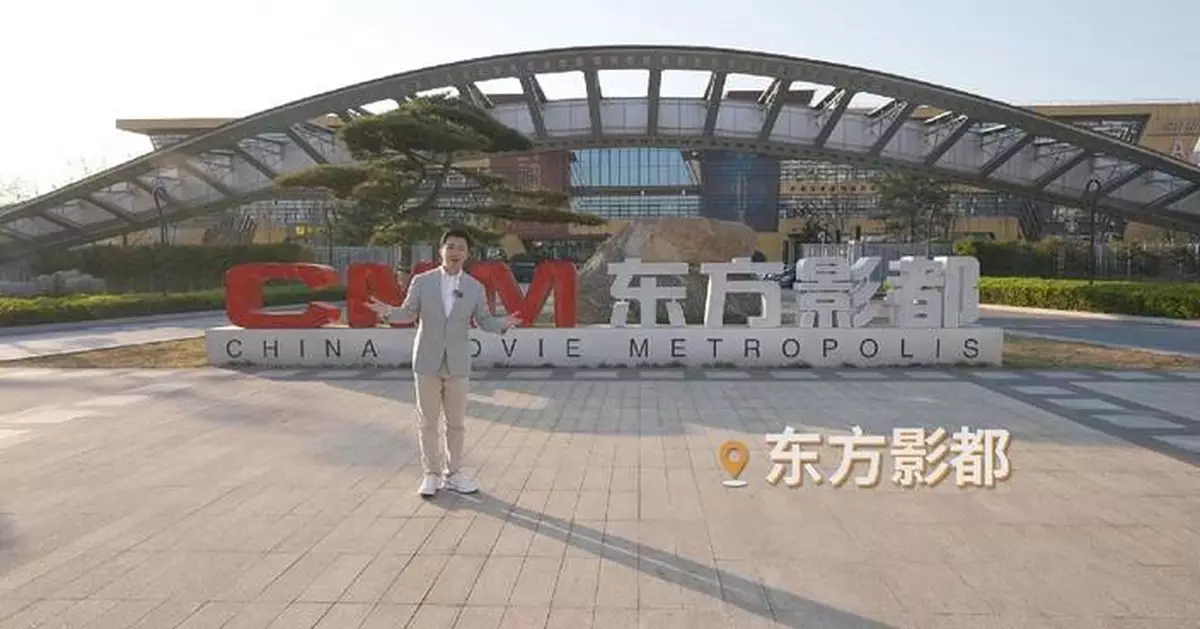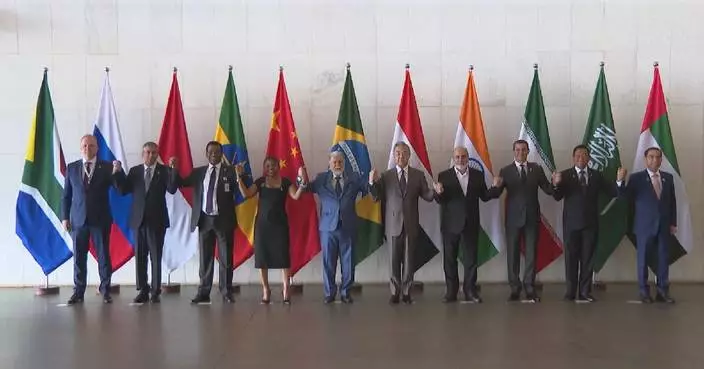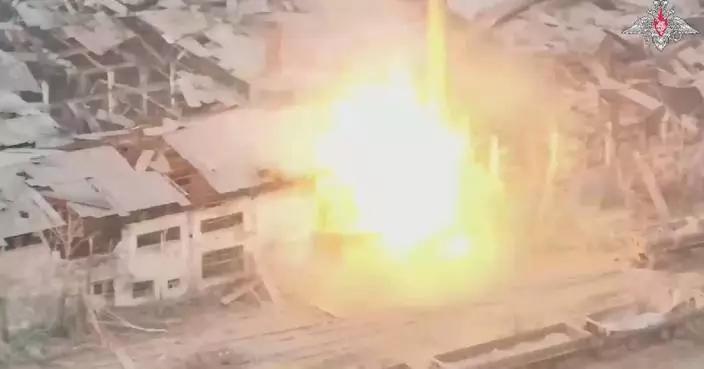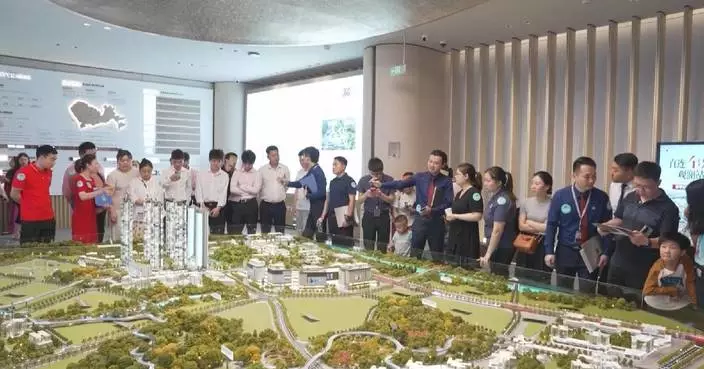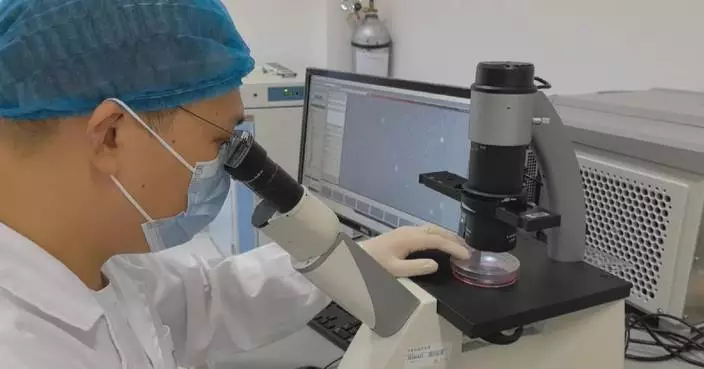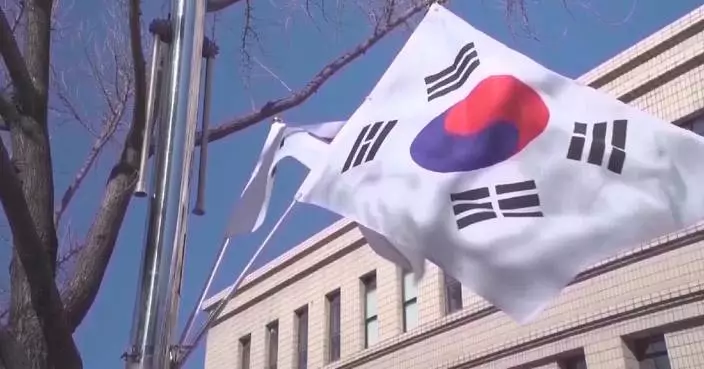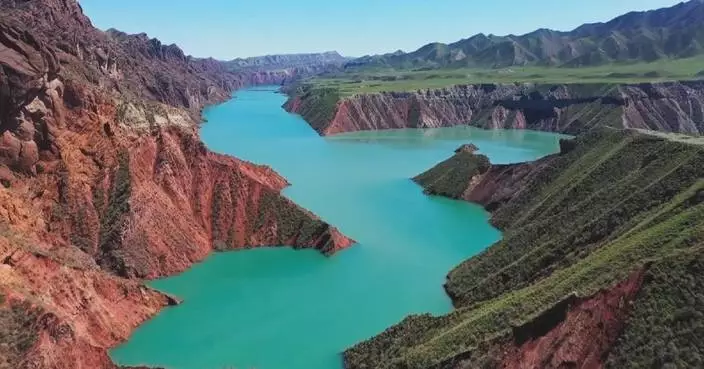As the 20th China Huabiao Film Awards ceremony will take place in the coastal city of Qingdao in east China's Shandong Province on April 27, Qingdao is cementing its role as a key hub of the global film industry.
Traditionally hosted in Beijing, this year's Huabiao Awards will be presented outside the Chinese capital for the first time.
As China's first UNESCO-designated City of Film, Qingdao has earned a reputation as a "dream film factory" and a natural studio. The city's growth into a filmmaking powerhouse is nothing short of remarkable.
Since 2013, Qingdao has been developing the China Movie Metropolis, a sprawling film park that now spans 1.7 million square meters - equivalent to more than 230 standard football fields.
The park is home to one of China's most advanced film production bases, featuring 40 international-standard soundstages and 32 multifunctional setting workshops.
"The film park features a globally leading virtual production platform, equipped with cutting-edge filmmaking technologies, including full-body 3D scanning, micron-level facial scanning, motion capture, and real-time rendering, which are all available here," China Media Group host Zhang Tao said during a recent visit to Qingdao to explore the city's rich cinematic history.
The facility also includes a 10,000-square-meter soundstage and an indoor constant temperature underwater stage, enabling the seamless production of grand cinematic scenes.
"Qingdao is home to over 1,500 film-related companies, with some of the country's top production teams specializing in props, set design, equipment, and film art," said Zhang.
Notably, two companies in Qingdao contributed to the post-production of the hugely successful animated hit "Ne Zha 2," showcasing the city's ability to manage every step of the filmmaking process.
"Up to now, film production bases in Qingdao, represented by the China Movie Metropolis, has hosted over 500 film and TV production teams, with films shot in the city generating over 38.7 billion yuan (about 5.29 billion U.S. dollars) in revenue," said Zhang.
Famous blockbusters such as "The Wandering Earth" series, "Creation of The Gods," "Successor," "Moon Man" and "YOLO" were all filmed in Qingdao, further cementing the city's role as a leading film production center.
This year marks the 130th anniversary of world cinema and the 120th anniversary of Chinese cinema, and Qingdao itself shares a 118-year history with the film industry.
The Seamen's Club in Qingdao is the home to China's first-ever cinema, which opened in 1907.
"According to statistics, from the 1930s to the Spring Festival holiday this year, nearly 200 films were shot in Qingdao, which is why many people refer to the city as the 'romantic old friend' of Chinese cinema," said Zhang.
As Qingdao continues to expand its role in the global film industry, it not only celebrates its historical connection to the silver screen but also positions itself as a vital player in the future of filmmaking. The city's hosting of the Huabiao Film Awards ceremony underscores its growing influence and commitment to fostering a thriving film culture.
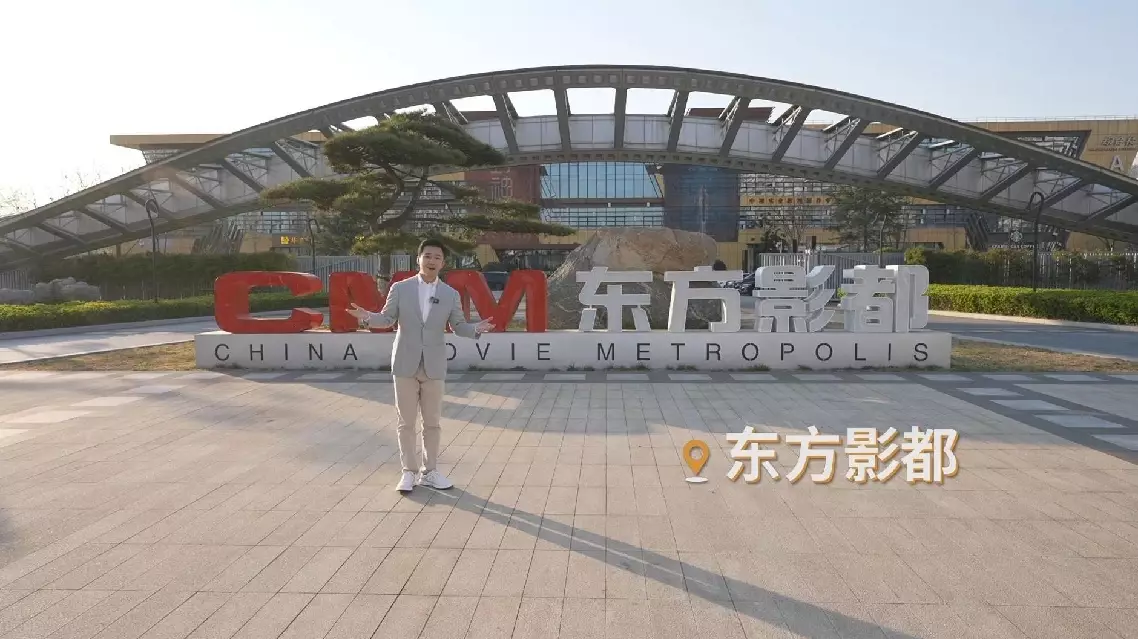
China's Qingdao emerges as key hub of global film industry
A deal to give the United States exclusive access to Ukraine's mineral resources has sparked contention among Ukrainian experts, who have described earlier drafts of the agreement as "unacceptable" and "colonial."
As the war between Ukraine and Russia is showing signs of winding down, another battle is quietly unfolding beneath Ukrainian soil, with competitors eying Ukraine's vast reserves of critical minerals.
The United States and Ukraine have signed an agreement to establish the U.S.-Ukraine Reconstruction Investment Fund, the U.S. Treasury Department announced on Wednesday.
For some, the minerals deal with the United States offers a lifeline for Kiev's war-torn economy. For others, it signals the quiet start of a resource takeover, raising concerns about what Ukraine may be giving away in exchange for support.
Ukraine is rich in critical resources such as graphite, lithium, and titanium. All these are vital to electric vehicles, the aerospace industry, and the high-tech supply chain.
At a graphite quarry roughly 400 km south from Kiev, capital of Ukraine, the roads give way to deep ruts and scattered debris, which means the mine site falls short of normal operation in wartime.
According to Ukraine's geological survey, the country holds 22 of the 50 strategic materials identified by the U.S. as critical.
As the global race for these resources intensifies, Washington is eager to secure reliable access. Ukraine, desperate for investment for reconstruction, has opened its doors. However, according to experts, the negotiations have been tense.
"When we had the first draft of this agreement, it was absolutely awful, absolutely unacceptable for Ukraine. It was also like a colonial agreement," said Volodymyr Landa, senior economist at the Center of Economic Strategy of Ukraine.
The country's mining sector is in dire need of foreign capital. At one of Ukraine's largest graphite deposits, infrastructure is minimal, with a few dogs, a guard, and an elderly tractor driver.
A Lviv-based mine owner said water pipes freeze over in winter, bringing operations to a halt. More importantly, the war has drained both labor and funding.
"If the Ukrainian government presents it for free, for 50 years with free rent, our resources will lose from that," said Ostap Kostiuk, CEO of Zavallivskyi Graphite, located in the Kirovohrad region.
Following a tense and reportedly humiliating visit to Washington in March, Ukrainian President Volodymyr Zelensky appears to have softened his stance on a minerals deal he once said he would never sign. The move has triggered public outcry at home.
"Now they (the U.S.) say 'give me money, no, lithium' for the guarantees. It's not fair, I think," said a local resident.
"I definitely started to respect America less. He (Trump) is not interested in Ukraine actually ending the war," another added.
This graphite deposit represents only a fraction of Ukraine's untapped potential. An estimated 30 percent of its critical minerals have already been extracted. The other 70 percent, still buried across vast swathes of the country, is what many believe Washington is ultimately eying.
"Please do everything to make this peace closer to us, closer to people, closer to Ukrainians. Because every day, every hour, every minute, it costs our Ukrainian nation one to five Ukrainian best guys' lives," said Kostiuk.
In the view of Professor Valeriy Pekar, a business scholar in Kyiv and Lviv, the Trump administration is not actually interested in securing peace for Ukraine.
"To take control of our resources, it is necessary to end the war. The American leadership declares themselves great peacemakers, but what they really do is not peacemaking. It's war mongering," he said.
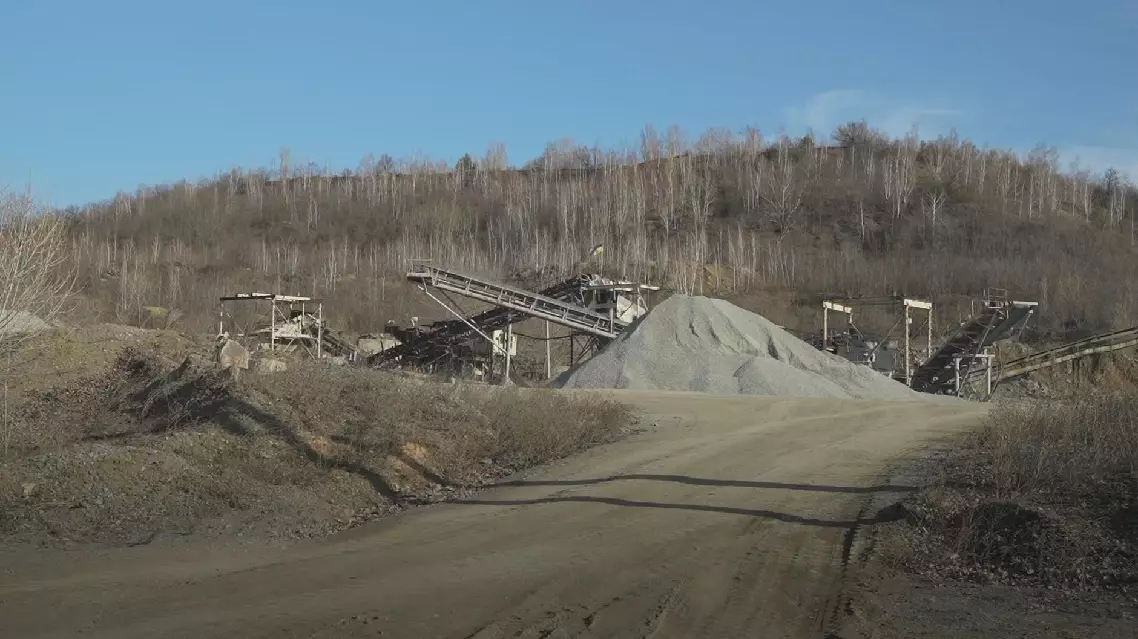
US interest in Ukraine's critical minerals draws public backlash



